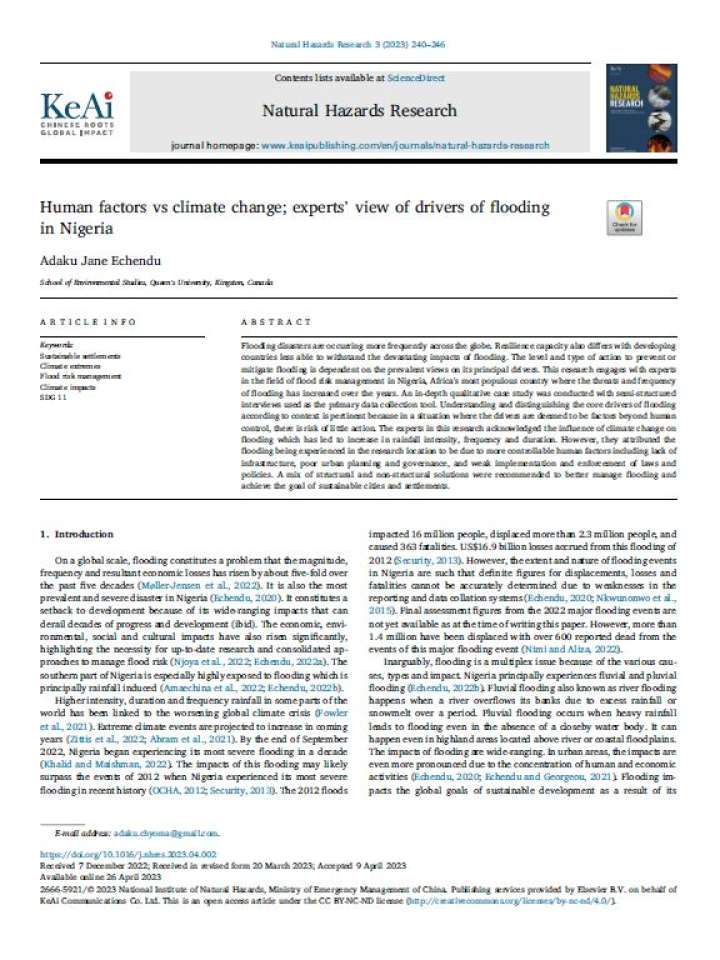Human factors vs climate change; experts’ view of drivers of flooding in Nigeria
This research engages with experts in the field of flood risk management in Nigeria, Africa's most populous country where the threats and frequency of flooding has increased over the years. An in-depth qualitative case study was conducted with semi-structured interviews used as the primary data collection tool. Understanding and distinguishing the core drivers of flooding according to context is pertinent because in a situation where the drivers are deemed to be factors beyond human control, there is risk of little action.
Flooding disasters are occurring more frequently across the globe. Resilience capacity also differs with developing countries less able to withstand the devastating impacts of flooding. The level and type of action to prevent or mitigate flooding is dependent on the prevalent views on its principal drivers.
The experts in this research acknowledged the influence of climate change on flooding which has led to increase in rainfall intensity, frequency and duration. However, they attributed the flooding being experienced in the research location to be due to more controllable human factors including lack of infrastructure, poor urban planning and governance, and weak implementation and enforcement of laws and policies. A mix of structural and non-structural solutions were recommended to better manage flooding and achieve the goal of sustainable cities and settlements.
Explore further
